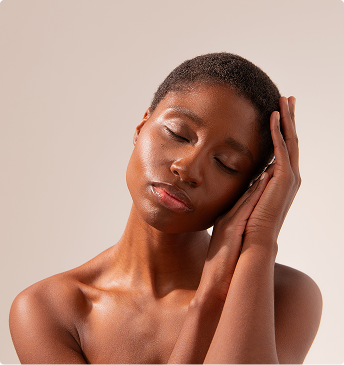HOW TO *ACTUALLY* HACK YOUR SLEEP
Unless you’ve been living under a rock, you’ll know (or have at least experienced) that sleep is an integral building block in maintaining your physical, emotional, and mental health. You know when you didn’t drink too much but went to bed late and still ended up feeling truly…terrible?! That’s lack of sleep in action.
A restorative night's sleep allows the body to recover, recharge and repair, leaving you refreshed the next day. Did you know that many of the body’s physiological processes critically only occur when asleep [1]?! We get it. Occasionally skipping out on those invaluable ZZ's is inevitable with socialising (pre-pandemic, naturally) and work commitments, but a word of warning! Regularly not getting enough can welcome some serious medical conditions including obesity, heart disease and diabetes – AND it even shortens your life expectancy [2]!
Below we’ve put together everything you need to know hacking your way to the best night’s sleep of your life. Consistently!
Get ‘Circadian Clock’ Watching.
First things first. We all have an internal system which automatically resets (or ‘entrains’) every 24 hours from the sun's light/dark cycle. Ever heard of your natural body clock? This is it! Some science for you. Its official name is ‘the suprachiasmatic nucleus’ and it's located at the front of the brain next to the Hypothalamus. Why is this important? Understanding natural sleep pattern is crucial to hack your way to better sleep. You know the drill: no screens before bed, avoid taking naps in the afternoon and watching your caffeine intake. Sadly, these all mess with your circadian clock working optimally. SPOILER: a double espresso at 5pm is not going to help you sleep well…
Optimise Your Sleep Stages.
Let’s say you’re nailing your sleep hygiene but you’re still waking up groggy. Do you understand HOW you actually…sleep?! 'Sleep architecture' is the scaffolding behind our sleep and consists of four distinct stages [4]. Overall, it takes between 90 and 120 minutes to go through all four stages before the full sleep cycle begins again. You've probably heard of them! Stages 1 to 3 are defined as ‘non-rapid eye movement’ (NREM) and the fourth is known as ‘rapid eye movement’ (REM). Learning how to maximise these sleep stages can be the difference between feeling full restored and like you’ve barely slept when that dreaded alarm sounds *shudder*.
Transition Stage: Welcome to your transition period which lasts only a few minutes. Your heartbeat, breathing rate and brain activity slows down, sending the signal to your body to sleep. Most of us (unless you’re suffering from insomnia*) have this down without much effort.
Light-Sleep Stage: This is ‘light sleep’ 1.0.1. Surprisingly, we actually spend the longest total amount of time in this stage. If we don't get enough 'deep sleep' (more on that later), the vast majority of your sleep cycle can be made up of light sleep. This can sometimes be why we feel less than restored in the morning!
Deep Sleep Stage: 45 minutes after falling asleep it's officially GAME ON. This is where you can turbocharge the quality of your sleep. Stage 3 takes up 25% of our total sleep cycle and is known as the ‘deepest’ period of sleep. Here sleep achieved helps our bodies heal themselves and our minds rest. Our sleep architecture is designed to accumulate as much of this ‘deep’ sleep as possible but it’s the first two rounds that are key. These last around 25 minutes each and unfortunately, in subsequent sleep cycles the amount of sleep available in this stage decreases!
Dream Sleep Stage: This final stage occurs about 1.5 hours after you drop off and you’ve guessed it: your eyes will move rapidly underneath your eyelids and your brain waves will gradually increase. If you’re a prolific dreamer, this is when they will primarily occur!
The Bottom-line?
Now you understand the importance of sleep cycles, it’s crucial to make sure you pack as many into your night’s sleep as possible. Our best hack is *actually* pretty simple. Dedicate enough total sleep time every night to maximise as much of that restorative Stage 3 sleep and maintain a regular 'sleep routine' (yes, even at the weekends...). So, get consistent with achieving your 8 hours and get to bed early.
Sweet dreams!
[1] Source: ‘What Happens During Sleep’, Sleep.org 20/11/2020
[2] Source: ‘Why Lack Of Sleep Is Bad For Your Health’, NHS UK, 30/05/2018
[3] Source: ‘Circadian Rhythms and Circadian Clock’, NIOSH, 01/04/2020
[4] Source: ‘Sleep Disorders and Sleep Deprivation’, Nation Institutes of Health, 2006
*in which case please consult your doctor






